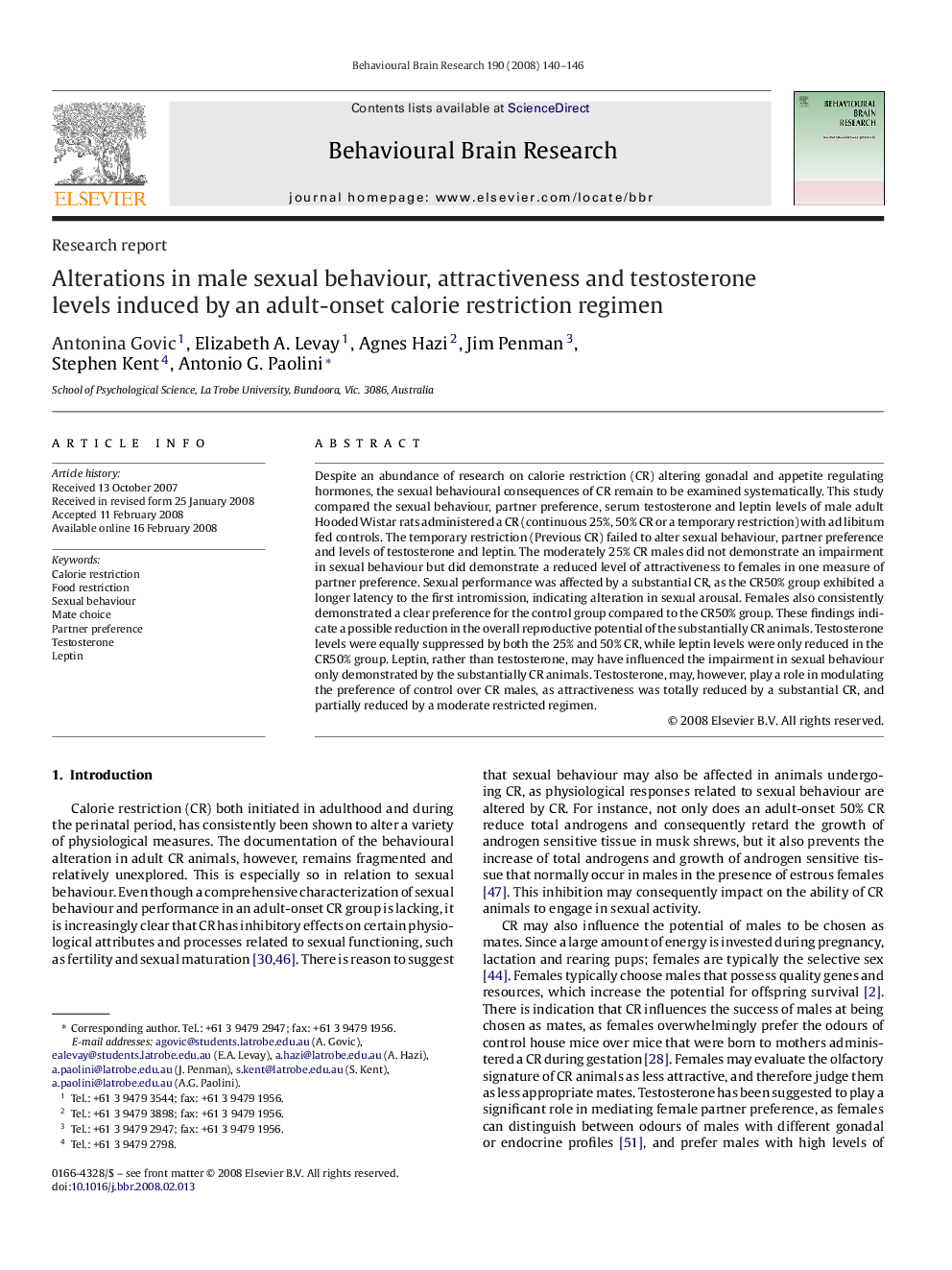| Article ID | Journal | Published Year | Pages | File Type |
|---|---|---|---|---|
| 4315241 | Behavioural Brain Research | 2008 | 7 Pages |
Despite an abundance of research on calorie restriction (CR) altering gonadal and appetite regulating hormones, the sexual behavioural consequences of CR remain to be examined systematically. This study compared the sexual behaviour, partner preference, serum testosterone and leptin levels of male adult Hooded Wistar rats administered a CR (continuous 25%, 50% CR or a temporary restriction) with ad libitum fed controls. The temporary restriction (Previous CR) failed to alter sexual behaviour, partner preference and levels of testosterone and leptin. The moderately 25% CR males did not demonstrate an impairment in sexual behaviour but did demonstrate a reduced level of attractiveness to females in one measure of partner preference. Sexual performance was affected by a substantial CR, as the CR50% group exhibited a longer latency to the first intromission, indicating alteration in sexual arousal. Females also consistently demonstrated a clear preference for the control group compared to the CR50% group. These findings indicate a possible reduction in the overall reproductive potential of the substantially CR animals. Testosterone levels were equally suppressed by both the 25% and 50% CR, while leptin levels were only reduced in the CR50% group. Leptin, rather than testosterone, may have influenced the impairment in sexual behaviour only demonstrated by the substantially CR animals. Testosterone, may, however, play a role in modulating the preference of control over CR males, as attractiveness was totally reduced by a substantial CR, and partially reduced by a moderate restricted regimen.
